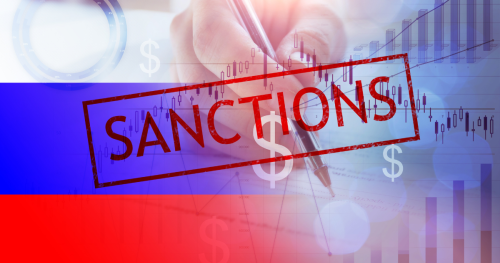 This article is part of the “Trade Pills” series, a column that provides brief, periodic updates on trade and sanctions-related topics.
This article is part of the “Trade Pills” series, a column that provides brief, periodic updates on trade and sanctions-related topics.
Tariffs war: President Donald J. Trump increases tariffs on steel and aluminum
President Trump signed a proclamation to increase tariffs on steel and aluminum imports from 25% to 50%, effective June 4, 2025. This action aims to protect America’s steel and aluminum industries from unfair trade practices and global excess capacity. Tariffs on imports from the UK will remain at 25%, with possible changes starting July 9, 2025. The increased tariffs will apply only to the steel and aluminum content of imported products. Strict reporting requirements and penalties for false import declarations will be enforced. The decision is part of efforts to restore fairness to steel and aluminum markets and strengthen America’s manufacturing industry.
The increased tariffs on steel and aluminum imports to the US have several implications for the EU amongst which higher costs due to the 50% tariffs, making their products less competitive in the US market. On its side, the EU has pledged to implement swift and proportionate countermeasures on US imports into the EU, potentially leading to a trade conflict, while trying to secure a deal before July 9, when reciprocal tariffs on most other goods could rise from 10% to up to 50%.
****
On June 10th, 2025, the High Representative for Foreign Affairs and Security Policy, Kaja Kallas, announced the 18th package of sanctions against the Russian Federation. The proposal follows the refusal of the Russian Federation to enter talks with the Republic of Ukraine and aims to persuade the Russian Federation to join the negotiating table with a serious proposal.
The European Union is thus proposing further sanction targeting the energy sector and the banking sector, while also widening current export bans and export controls procedures and enhancing the anti-circumvention measures.
The 18th package of sanctions will introduce a full transaction ban for Nord Stream 1 and Nord Stream 2, so that no operator established in the European Union will be able to engage – directly or indirectly – in any transactions regarding these pipelines. The European Union has also prosed a reduction of the oil price cap from the current 60 $ to 45 $ per barrel: to ensure an effective enforcement of the oil price cap the block aims to list additional seventy-seven vessels of the shadow fleet used by the Russian Federation to evade economics sanctions.
The European Commission has also proposed the introduction of a ban on the import of refined products based on Russian crude oil to prevent crude oil coming from the Russian Federation to enter the common market in the form of gasoline, kerosene, lubricants or the like.
The proposed sanctions for the banking sector will limit the ability of the Russian Federation to raise funding and conduct transactions and transform the existing prohibition to use the SWIFT system into a full transaction ban. The ban will also be extended to a further twenty-two financial institutions established in the Russian Federation and to financial operators established in third countries financing trade to Russia in violation of international sanctions. The Russian Direct Investment Fund will also be targeted.
The European Commission has also put forward further export bans worth more than 2.5 billion €: this ban will deprive national economy of critical technology and industrial goods and will be targeting machinery, metals, plastics and chemicals, while also restricting the export of Dual-Use items and technologies used to produce drones, missiles, and other weaponry.
This further package of sanctions confirms the commitment of the European Union to force the Russian Federation to negotiate seriously as “Every day Russia continues its war, the price must go up” as stated by High Representative for Foreign Affairs and Security Policy, Kaja Kallas during the press conference.


